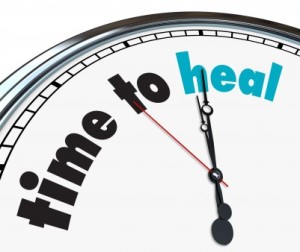- Calls to this hotline are currently being directed to Within Health, Fay or Eating Disorder Solutions
- Representatives are standing by 24/7 to help answer your questions
- All calls are confidential and HIPAA compliant
- There is no obligation or cost to call
- Eating Disorder Hope does not receive any commissions or fees dependent upon which provider you select
- Additional treatment providers are located on our directory or samhsa.gov
Multitasking While in College In Eating Disorder Recovery: Benefits and Drawbacks

Contributor: Crystal Karges, MS, RDN, IBCLC, Director of Content and Social Media at Eating Disorder Hope/Addiction Hope
Look around you. Everyone today is multitasking – doing multiple things at once. It is not uncommon to see a person driving, while eating lunch and simultaneously scrolling their phone for the latest social media updates.
We have become a conditioned as a society to a fast-paced culture where the art of focusing on one thing or task at a time has quickly become disregarded. This is perhaps most closely identified with college students, who are trying to balance academics, career prospects, finances, social life and more. Throw in eating disorder recovery to the mix, and the entire process can become convoluted.
Scheduling For Optimal Function
Multitasking can have its benefits. Being able to simultaneously work on several things at once can be attributed to increase drive and success. However, how efficient are we really when attempting to focus on multiple things at once? With time, energy, and focus exerted in limited quantities, how much of ourselves can be given to the things around us without compromising quality and optimal function?
Many college students might testify that they have no other choice but to multitask in order to stay afloat with an overloaded schedule. However, for the college student who may be recovering from an eating disorder, schedules should be approached mindfully as a proactive way of keep recovery a priority. This is especially true in early phases or recovery, where time should be allotted for adequate meals, follow up appointments, support groups, etc.
 Avoiding overscheduling can help minimize the need for multitasking, which can alleviate some pressure and stress. As a college student in eating disorder recovery, be sure to support your recovery efforts by structuring a schedule and routine for yourself that allows you the time you need to focus on the aspects that are necessary for recovery – such as regular meal times, self-care, therapy, and more.
Avoiding overscheduling can help minimize the need for multitasking, which can alleviate some pressure and stress. As a college student in eating disorder recovery, be sure to support your recovery efforts by structuring a schedule and routine for yourself that allows you the time you need to focus on the aspects that are necessary for recovery – such as regular meal times, self-care, therapy, and more.
Staying Accountable
The college life can definitely feel like a bit of a culture shock if you are coming from a structured treatment program for eating disorder recovery. Be sure to take the time you need to make the transition successful. Consider taking classes on a part-time basis until you feel comfortable, living at home if possible, and aiming for a lighter load with extracurricular activities.
It might also be helpful to have an accountability partner to stay connected to, who you can check in with regularly. Having a mentor or support system set in place can serve as a time to proactively check in with yourself and evaluate how things are progressing with your recovery efforts.
Community Discussion – Share your thoughts here!
What do you think are potential dangers to eating disorder recovery with multitasking?
 About the Author: Crystal is a Masters-level Registered Dietitian Nutritionist (RDN) with a specialty focus in eating disorders, maternal/child health and wellness, and intuitive eating. Combining clinical experience with a love of social media and writing, Crystal serves as the Special Projects Coordinator for Eating Disorder Hope/Addiction Hope, where her passion to help others find recovery and healing is integrated into each part of her work.
About the Author: Crystal is a Masters-level Registered Dietitian Nutritionist (RDN) with a specialty focus in eating disorders, maternal/child health and wellness, and intuitive eating. Combining clinical experience with a love of social media and writing, Crystal serves as the Special Projects Coordinator for Eating Disorder Hope/Addiction Hope, where her passion to help others find recovery and healing is integrated into each part of her work.
As a Certified Intuitive Eating Counselor, Crystal has dedicated her career to helping others establish a healthy relationship with food and body through her work with EDH/AH and nutrition private practice.
The opinions and views of our guest contributors are shared to provide a broad perspective of eating disorders. These are not necessarily the views of Eating Disorder Hope, but an effort to offer discussion of various issues by different concerned individuals.
We at Eating Disorder Hope understand that eating disorders result from a combination of environmental and genetic factors. If you or a loved one are suffering from an eating disorder, please know that there is hope for you, and seek immediate professional help.
Last Updated & Reviewed By: Jacquelyn Ekern, MS, LPC on August 14, 2016
Published on EatingDisorderHope.com

The EatingDisorderHope.com editorial team comprises experienced writers, editors, and medical reviewers specializing in eating disorders, treatment, and mental and behavioral health.

